
OUT OF THE CASTLE INTO THE COUNTING-HOUSE
Ethel Goldwater's "The Independent Woman" is clearly a serious bit of
reflection. It covers a lot of ground. And its -last sentence ("Man's
place is in the home!") is not only serious, but, in a sense, no
paradox at all. It has always been true. Economic conditions in the
past kept men out of the home and women in the home. At least, to a
large degree. But at that, the agriculturalist seldom worked beyond
the sight of his own house, and the craftsman and pieceworker (like
the shopkeeper) worked at his own door, or inside his own home, as
does the modern university teacher.
Out of the Castle...
With the rise of the factory towns, home became, for the men, a mere
dormitory. For the women a prison. In the past forty years the
dwelling unit has tended to become not much more than a cell. Such is
the constricted asceticism of contemporary domesticity that our
grandparents would look on our arrangements as little less than
monastic. To raise children in an apartment or an urban home today is
to persist whimsically in a human activity for which the environment,
(physical and social) provides a categorical veto.
The Englishman began to say that his home was his castle just at the
time that the factory towns were putting an end to communal patterns.
There was then no social bond for factory "hands" outside their work
any more than now. The home was cut off from society and the castle
symbol records the universal state of anxiety and isolation which was
bred from the first industrial chaos. The Victorian home is synonymous
with a besieged castle. It protected women and children from "the
world." Society was a hostile and polluted realm into which the men
made forays and from which they returned with loot. Their women were
to be kept pure from this commercial pollution.
Most discussions about rights for women are carried on against this
Victorian background. Talk about the double standard or oppressive
patriarchs usually refers to the conditions of the later nineteenth
century - conditions which would have seemed intolerable to ordinary
social beings of any previous period. Much of the heat in these
discussions arises from the fervidly held dogma that the Victorian
home was the residual legatee of an uninterrupted domestic tyranny.
Mrs. Goldwater carries on her discussion without any of the frantic
recrimination born of that dogma. Presumably the dogma is dead.
At any rate it has been clear to most people for twenty years or more
that votes for women and careers for women were as much the play-
things of economic change as the Englishman's pitiable castle. When
the home ceased to be at once a communal and social center it at first
became the prison of the urban housewife and the coffin of "the old
maid." But as industrial homes became progressively smaller, the
shades of the prison-house became less and less tolerable. Men and
women alike preferred the streets, and the new shops and offices, to
their constricted quarters. For men, the pub provided a vestige of
communal life which had disappeared from the dormitory neighborhoods.
(Aimless cruising in a car is now a substitute for the pub.) It is
small wonder that the pub and the saloon were bitterly resented by our
grandmothers, who had not been able to salvage anything comparable
from the wreck of the old community life.
... into the Counting-House
It is true that women were driven into the commercial world by over-
crowding and poverty at home. But they were welcome to the employer
who could have them at half the wages of a man. The male stenographer
at $150 a month soon disappeared. The Civil War in America saw large
numbers of women employed in plants. World War I completed their
initial transition from home to business. (Skirts were shortened for
work at that time.) But women did not desert the home until it had
been first isolated from the community and then rendered further
intolerable by over-crowding and poverty.
But apart from the historical facts (which many have never been
willing to consider) it is clear enough that women stood to gain very
little by seeking to participate in a commercial world which had
already enslaved and degraded the men. Is it not strange that the
gaining of "jobs for women" is still regarded not as a necessity but
as a victory of some sort? The bizarre quality of this victory is only
increased by the argument that there are NOW very few jobs done by men
that cannot be done by women. This is, indeed, a fact. But to argue
that the independence of women can NOW be made complete because the
routines of commerce have been brought within the competence of
physical weaklings and morons!
How easy it would be to push this rather cynical reasoning a step
further. Could it not then be said that women are especiaiiy fitted to
take over ALL the functions of the modern business world? Have not
women for countless centuries (the stock argument) been conditioned to
witless obedience and servitude? Have they not been conditioned
(another stock argument) to lethal competition in the peddling of
their charms? But is not the world competitive commerce constituted in
precisely this way? Does it not exact slavish, unimaginative docility
and brainless routine? Does it not demand a strictly personal
hostility and competitiveness ("psychological insight") disguised as
human sympathy and eagerness to serve? Whatever the woman of a
thousand years from now is to have been conditioned to become, the
woman of today and yesterday (as painted by her emancipators) is
ideally qualified for contemporary business success.
It follows from the stock arguments, therefore, (the frivolity is in
them and not in me) that if women are NOT allowed to take over the
entire business world at once, the masculine character is likely to be
whittled down to the same dismal condition to which men have reduced
women. The feminine desire for jobs may thus be made to appear as a
final stock-response of feminine self-sacrifice. "Save the men!"
I think that what Mrs. Goldwater meant by "The man's place is in the
home!" is now plainer. Was she not groping for a way of saving men
from the crippling docility of the plant and office by reserving for
them the wildness of domesticity? (The housewife is at least her own
boss.)
The Advantages of Polygamy
The logic of present economic conditions points to some further
possibilities. The salary of one man today can seldom support a wife
and children in any but the most crowded city locations. Do not the
advantages of polygamy become considerable in this situation? For
example, Mrs. Goldwater can see no way to prevent a woman from leaving
the commercial scene for less than ten years or so, if she is to round
out her physical and emotional life with marriage and children.
However, if a working woman were to be one of four or five of one
man's legal wives, her period of domestic immobility might be reduced
a great deal. It could be arranged in rotation for one of the wives to
take off a year to bear a child and to help her husband with
housework. Each of the other wives would have eight hours a day with
her own child (or children) after work. Each wife could have her own
small bed-room apartment in addition to contributing to the upkeep of
the main home. Polygamy would not rule out polyandry should that prove
more workable in some instances. But merely to mention these highly
rational alternatives to monogamy (and monogamy is not only religious
in origin, but an uneconomical and relatively recent form) shows how
much the radical woman of our time is still embedded in her
conditioned past.
That we are nevertheless well on the road to a reversal of economic
roles for men and women is evident in the increase of conscious
homosexuality. A great number of men yearn for the role of feminine
dependence and protectedness today. They would love to keep house,
even on Victorian terms, for some more aggressive person. And, of
course, the more sensitive among these EXOLETI despise the bourgeois
woman for her lack of elegance and style, her servile capitulation to
commercial fashions. Their male partners, on the other hand, shy off
from the economic complexities of heterosexuality, from its children
and exacting demands. Even fifty years ago a married man enjoyed a
prestige which is denied him today. There are no longer any social
rewards for marriage because there is no longer a human community. The
rewards are merely an individual matter. Not enough for many people.
Independence - on a Desert Island
It really doesn't matter at what point one dips into economic
conditions which have led to the emergence of the independent woman.
It always is evident that her independence from men is premised on the
collapse of human community. For men are now equally independent of
women and independent of communal or human standards. This
independence of men and women, as of man and man, is quite simply
owing to universal dependence on the machine. Since all human
relations are now fugitive and vestigial, independent women are merely
experiencing the isolation which men first encountered in their public
relationships two hundred years ago. The elaborate parable called
Robinson Crusoe records that masculine event. (Is The Well of
Loneliness the modern feminine equivalent?) The loneliness of
tradesman Crusoe, like his feverish inventiveness, is psychological.
The horror and dread which he felt on seeing the naked footprint in
the sand strikingly reveals his hatred for the society which, on one
hand, he was betraying, and which, on the other hand, had already
deprived him of any emotional security:
"When I came to my castle, for so I think I called it ever after this,
I fled into it like one pursued... never frighted hare fled to cover,
or fox to earth, with more terror of mind than I to this retreat."
Significantly, today when an ideal love-nest is envisaged, the Gallup
poll query is: "With which movie star would you prefer to spend a year
on a desert island?" Human love and marriage today have no more
relation to human society than had Crusoe's economic activities in the
eighteenth century.
It is typical of everything subsequent that the "classical economists"
should take the neurotic symbolism of Defoe as the prime postulate for
their rational structures: "Let us imagine a man on a desert island."
Moreover, Adam Smith literally makes his cornerstone what had appeared
to Mandeville as monstrous: "Private vices, public benefits," or the
greatest good of the greatest number ensured by the rapacity of each.
I am merely illustrating, apropos of the independent woman, the
impossibility of accepting at face value any of the naive rationalisms
of the past or present. With the disappearance of communal patterns,
the individual reason became wholly engaged in the business of
egotistic self-protection by fantasy. A mere compensating mechanism,
as it is clearly expressed in Rousseau's rage against society. Marx's
class-war doctrine transfers to the economic plane the rage which
Rousseau directed against reason and civilization. The proletariat
assumes the messianic role of the noble savage. But, both men depend
implicitly on the older metaphor of the "organic society." This snide
metaphor, born of nationalist fever and economic aggression, was the
excuse for publicly setting aside both national and inter-national law
in the sixteenth century, as in the twentieth. "Reason of State" is
beneath reason, urgent and blindly organic. The Victorian was merely
shocked that Darwin should have had the bad taste to transfer this
very old political metaphor to the sphere not of social but domestic
relations. The extension of the metaphor knocked down the walls of his
castle at once. The pollutions of the outside world were now inside
his home. Notice all the beasts that inhabit the imagination of Lewis
Carroll's Alice. Freud merely completed the "pollution" of the
Englishman's castle.
The Function of Coeducation
It is against this kind of awareness and background that profitable
discussions of human relations must now be conducted. Perhaps Mrs.
Goldwater tends still to move amidst the SIMPLISTE counters of pre-
Freudian rationalism. For example, she assumes that coeducation is an
indisputable social gain. It is to be thought of as somehow rational.
Pro-woman. A triumph over prejudice. But the only rational approach to
the phenomenon of coeducation is to observe its function. What are the
social ends it serves? In America it came into existence quite
independently of any doctrinaire discussion. And certainly, had it
been thought to make for the objectives which Mrs. Goldwater applauds,
it would have been squelched at once.
In the very meager literature on the subject of coeducation only one
argument is to be found: "It helps Johnny and Mary to get along
together." Apart from the weird implausibility of such a theory (all
the more weird because it has never been challenged) one has only to
point to American divorce rates. Surely some other way of helping
Johnny and Mary must be found. But since when have boys and girls or
men and women ever needed to be helped to get along together? That is
the glaring feature of this casual explanation. It is the explanation
which is challenging rather than the institution of coeducation.
To put the matter in a word, the main impulse behind the practice of
coeducation in America is a latent fear of homosexual trends. This is
a novel explanation. Yet it is, so far as I know, the only serious
explanation that has ever been offered for an institution which has
had few exponents in any time or place, but which in America has had
almost no critics. It is also an explanation which explains the stock
"defense" of the institution, as well as explaining why no serious
discussion has occurred.
I am not criticizing coeducation. It is quite probable that the
unconscious strategy behind it is justified in the circumstances. That
the anxieties and hostilities of American home and commercial life
make for sexual and social uncertainty is plain enough. Just as the
"over-valuation of women" (owing to scarcity in pioneer days) produced
formerly a resentment which has not diminished in our time. (It is not
irrelevant that the "wolf" cult, which began with Pearl Harbor and the
increased masculine importance as warrior, was regarded as a set-back
for feminine social gains. Sinatra appears in this situation as
guarantor of the STATUS QUO.)
But apropos of the success of coeducation in overcoming sex fear and
hostility by the titilations of unremitting proximity, it is worth
mentioning one major drawback. Mrs. Goldwater notes that "the girl
matures physically and mentally earlier than the boy." The effect of
this in American schools has been to cause the boys to abandon studies
(at which they are inferior until college years) in favor of
"toughness." Mere wounded vanity. But "toughness" makes for confirmed
adolescence even when it doesn't foster homosexual tendencies. And the
familiar stigmata of American toughness, with their erasure of the
motives towards emotional and intellectual maturity, are a
considerable price to pay. Were the emancipators of women to look
carefully into the totally unexamined premise about coeducation, (and
it is typical of the rest) they might soon come to regard it not as a
prop of independent womanhood, but as the cave-man's club come back
again.
*
Perhaps, however, the main weakness of Mrs. Goldwater's discussion of
the independent woman is that she looks for a solution to the present
difficulties in terms of further accommodation of women to the
commercial world. And she may even seem to think of the problem as a
woman's problem, not just a human problem. But the difficulties arise
by default. The negation of community and of any basis for community
in the tradesman (as well as the bureaucratic) mentality. (The
heroines of Henry James, for example, are symbolically dissociated
from commerce. They are quite "useless." James would scarcely permit
himself to see them against their commercial background. He preferred
the vacuum of LE TOURISME to that.) There is, therefore, little to be
hoped in the direction of "the wish for individual recognition" on the
part of the independent woman, or man. Especially if that recognition
is to be given for services to "them that buy and sell."
The problem for both men and women needs to be envisaged as a new
pattern or mode of being rather than improved doing. Must we have even
more achievement and public recognition? Doing and achievement are now
ingrained. Practical accomplishment is no longer related to
controllable human ends. So that it may be centuries before any
thinking person would care to be called a practical man or woman.
Practical men are now busy about the funeral arrangements for our
society. They can be fully relied on to get through the business.
Meantime the need is for a vision unconditioned by bureaucratic or
commercial cadres. And vision comes not by grappling with major
problems as "social engineers" but by patient observation and
analysis.
- Marshall McLuhan, POLITICS, September, 1946, pp.277-79.













![et cetera : LOVE [1977]](https://blogger.googleusercontent.com/img/b/R29vZ2xl/AVvXsEgQ8s7vwLQuzHDNgqlfBacxRkEbOErToak9kmgFl0VmyIYEqS9qIzNIVcXKpzTncPhqo3TSgOyztAguIW6OlXw65aFHmpx6cRzmvCUQQMTwUGUOd0iE0GbJakEc3g3kBAJrvlZP4z3eesg/s1600/etc1977.jpg)









![MAC LUHAN [sic] : LOST IN TRANSLATION](https://blogger.googleusercontent.com/img/b/R29vZ2xl/AVvXsEg92tMqBMDA917NDivsS2ZwIirx9KTf24tOCgFFnK65p7Hw5dvqEh1e2aefCynj2UW8u-k8zwBXbjgypsCXUcv-5G7ZCsyDB13giHEjmhVISAeW-oI_JV6ePOXW_XBDPwy2nREAoqRU7Z8/s1600/MAC.jpg)






















![Les Yeux De Nadja [unpublished]](https://blogger.googleusercontent.com/img/b/R29vZ2xl/AVvXsEgrXohpIuxxYyjKoqBSQf3TpYGjnttZnjRFvmMdshadfnVKi7PMAjIqEuqYctZFXOFH2n-oH75oJx-YkaON7xvaZgVdvaK0zfSOurEmCKqmWF6qXh2F3VbqyixfGhvY4qH6LENMTs1wCIw/s1600/2xsurreal.jpg)
















![PIED PIPERS [MARSH] ALL](https://blogger.googleusercontent.com/img/b/R29vZ2xl/AVvXsEhqvGIGG9lWZYhFZRVc_V8EJG2apQBsys4kNQOQsA0EV6H6Tg-SMN0sX15NXy_GzsF3xAUdcb2QlfvJk-RU-Rha-3Eu5Mnglkf5KLe6pccVqAP4VR_Gi4fGQ716QSmDe3Zna5Uwct5d2sw/s1600/piedPiperMarshALL270.png)



























































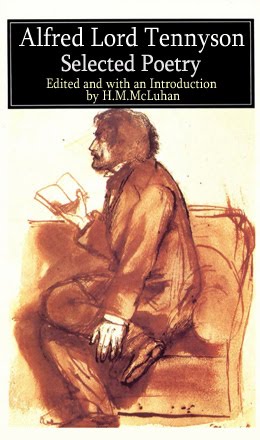

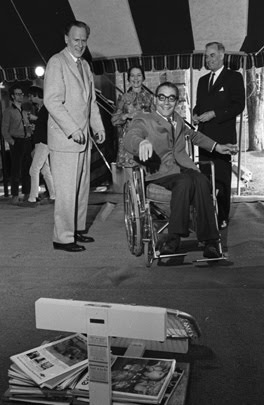




![PICNIC IN SPACE : The Great Minds of Our Time Film Series [1973]](https://blogger.googleusercontent.com/img/b/R29vZ2xl/AVvXsEjyov75DRIUBWcYLkzPYmupFy8CQ9dQ4Q798zDIN6jPNsSdBB_WuOcvPl4WjMAz10csG071oCO3BCUtIcKyHoIkCN0lCy0OxGCV_HrLXrGNKRpUiKMrqzkJh4LSc7jT_KrrqmClapSlVa8/s1600-r/PicnicInSpace.jpg)









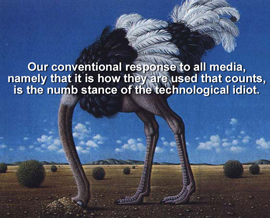


















![more Hidden ground [re:Bride] : the "flippancy" of tone seemed just "right"](https://blogger.googleusercontent.com/img/b/R29vZ2xl/AVvXsEg-hQyF9KGGhKYc73nUGmV1bStJ4fTJVh0-TL1ZtikLZEv5ppjhB3DOhFcVuzGq-kByrwtTAWgCcE173pA3UTIPe7h6xJjsPt7lRvNym007ZsdXenMDLNimKcwtaTOqkGleoxmXOeCKtxXL/s1600-r/LEAVISLEWIS.png)
















![BABA WAWA [TODAY SHOW, Toronto City Hall 1970]](https://blogger.googleusercontent.com/img/b/R29vZ2xl/AVvXsEjTZAIFkA07K36WGk951vmZnLPU99fOdNzlvVhyphenhyphenhKZEKu2n2AW5EA1CDZGaTk0aYRXUv7IOXG39igaikoE6SWm8j7QIG96wYRE54oBXwvlaNCJzp15vdkrcqR97IMMny-8sHjM-VDotTOaY/s1600-r/babaWawa.jpg)

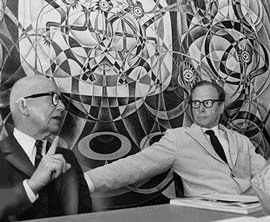

![enter the dragon : "typhon in america" [unpublished]](https://blogger.googleusercontent.com/img/b/R29vZ2xl/AVvXsEjdCnZdJ6JbaLc6hyUmUJo5UJ0m8WZSj_afYU9oRlHKIUgAIfcy2EPHNAptSRYEAmpOf0Xaa0B8iMgOTF302lY0Xmbyne0hvrdRyNo-t0Q-PPdzqX39uI3T5x5FppRPaQf9sSaXytrOpWVN/s1600-r/TIA.jpg)




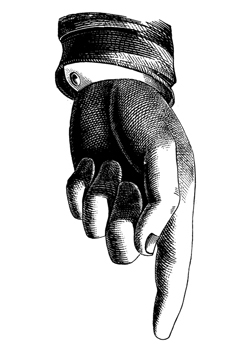






















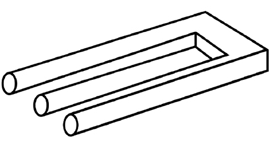









![Take Today [1972] : "the consumer becomes a producer..."](https://blogger.googleusercontent.com/img/b/R29vZ2xl/AVvXsEhA53bdVdTaXdQo1fDmrsI8oiAwF-3jampcanOq8uk3QMh8_ImkNsTiKd4-RnZY8Vbwqh1fymJiyCl1CSLcSonXHQM6XbnJYQi_Vu89gbAV4jVq73EtlbM3w6CthyphenhyphenV_pHEjE6eu_VhC489u/s1600-r/PROSUMER.jpg)








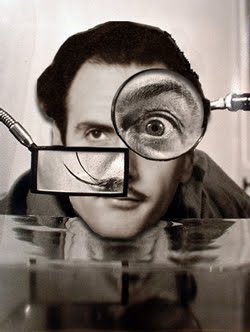















































































![" Outtragedy of poetscalds!, Acomedy of letters " [ FW 425.24]](https://blogger.googleusercontent.com/img/b/R29vZ2xl/AVvXsEhJMrJLN3oPUb25A2tjQtWZcZxA4wZB0IOvaIAvxosAUqlFc258HHvzvlnHHvKhKq7hG3epo76izY2Bu0HC3Cy-8S46Rf0Wni3L8j8jEfpT7sXK3UFlXBMtN2v2JdrmdxvWk8VWKjkhN4-9/s1600-r/preplexLP.png)











![mars[HAL]9000 : " Tomorrow is our permanent address."](https://blogger.googleusercontent.com/img/b/R29vZ2xl/AVvXsEhmblupqmUiuV3GbyayJiDRGEO63TEgwjHi-i8b0kVYDvXrKFWTCyl-e21la4QJXC4nDFDzx51Omi6fYPLJcqRHFoP6zSsL0CVZF98eMf6mxCE2WDfvMmT4q9G3X45-P0IYGDmliE0fCR3C/s1600-r/marsHAL9000_250.jpg)
































































































































































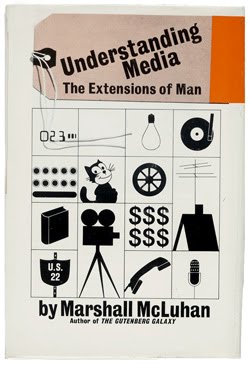









































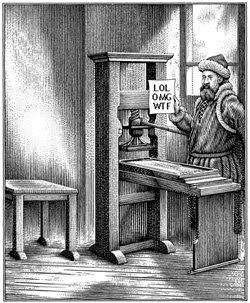








![Lucifer [from Latin] <br>meaning "light-bearer"](https://blogger.googleusercontent.com/img/b/R29vZ2xl/AVvXsEhq-2kZZOfh-Syv1Ewa0Ns2O6ZeP59pcsJp9ihhKcXCaovYZO_cKxffC5iSKOXFHr6E1jiHc6zedt1U6I95831RgpVdm3qk8-9C3y1yPyrCiQe4jgx-DsbeHnjKnw9t6Qx3ZM5TSYxiPj5H/s1600-r/lucifer.png)





































































































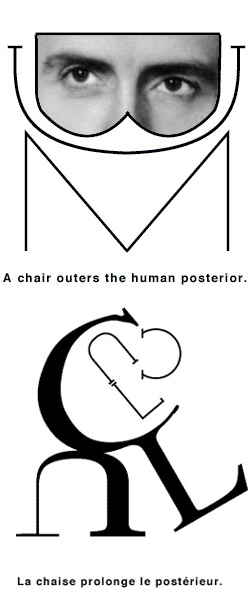






























































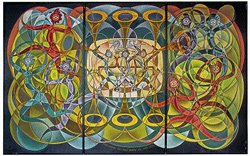
















No comments:
Post a Comment